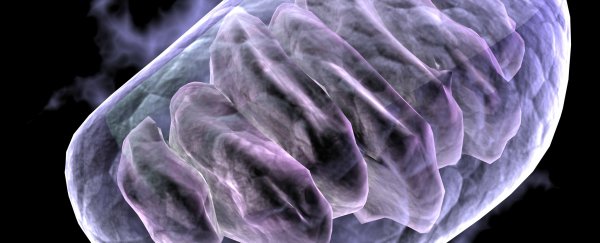Researchers from the Australian Nuclear Science and Technology Organisation (ANSTO) in Australia have discovered that generations of mice can survive without a protein long thought to be "essential for life".
The research could change our understanding of how some of the fundamental processes in our bodies occur, and could lead to new treatments for a range of conditions, including multiple sclerosis, dementia, cancer and obesity.
The protein is called the mitochondrial translocator protein (TSPO), and is thought to have been around for nearly 3 billion years. It is part of the family of small proteins that evolved into bacteria when the oxygen levels in Earth's atmosphere dramatically rose, sparking the first life on the planet.
Since then, translocator proteins have been conserved throughout the plant and animal kingdom, and we've assumed that they're necessary for life.
In plants, TSPOs play a role in photosynthesis, and in humans they're thought to play the crucial role of regulating the production of sex and stress hormones.
But working with scientists from the University of Sydney and the University of Wollongong, the ANSTO researchers have now confirmed that generations of mice can live without TSPO.
And it suggests that our understanding of hormone production and regulation may be wrong, and the TSPO knockout mice now offer an exciting new opportunity for studying what's really going on. The results have been published in Nature Communications.
"The pathways involved in many common disease conditions, such as that regulated by the TSPO, are increasingly recognised as key to understanding why there is such a close link between, for example, diabetes and Alzheimer's and why treatment of one reduces the risk of the other," said ANSTO's lead researcher, Richard Banati, in a press release.
Further work needs to be done, but there's now the possibility that our current understanding of diseases such as dementia, cancer, obesity and depression is wrong.
It also opens up the door to potentially creating new, more efficient treatments for existing diseases.
It's pretty exciting to think that we may have been wrong about one of the most fundamental requirements for life all this time - and the implications of that could be huge.
Love science? Find out more about the ground-breaking research being done at ANSTO.
Source: ANSTO
